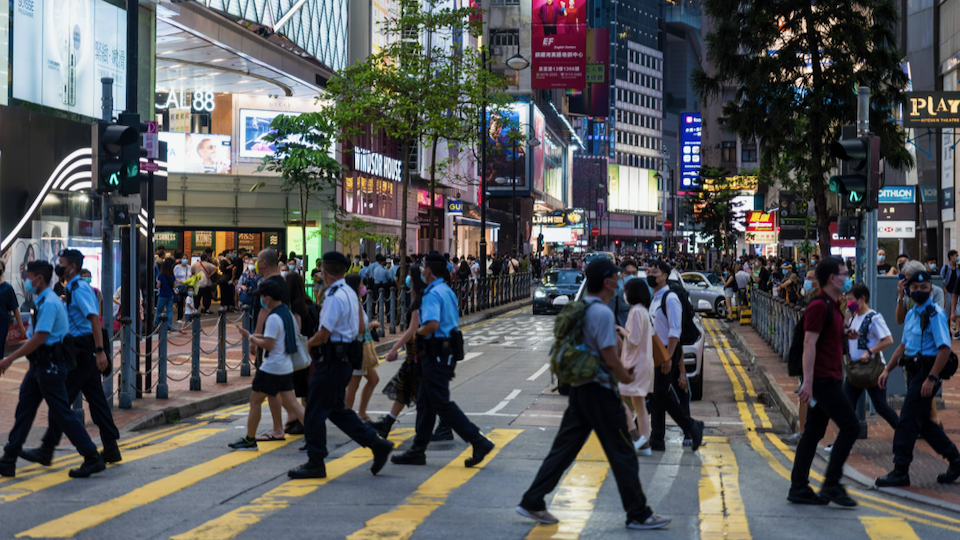Hong Kong: Google, Facebook & Co. threaten to withdraw

A union of companies including Google, Twitter and Facebook warns of a withdrawal of the internet giants and their services from Hong Kong if data protection regulations are tightened as planned. The Asia Internet Coalition (AIC) criticises a current bill as too vague and disproportionate, according to a letter to Hong Kong’s Data Protection Commissioner Ada Chung Lai-ling, which has been available on the AIC website since Tuesday.
The Hong Kong government allegedly wants to fight doxxing with the controversial bill. Doxxing is the practice of collecting and publishing personal data on the internet. For example, to harm someone personally, to expose them publicly or to identify them. The new law stipulates penalties of up to 1 million Hong Kong dollars, the equivalent of about 109,000 euros, and up to five years in prison.
During the 2019 protests, opposition members had disclosed personal data of (sometimes violent) police officers or their families. This led to threats. The law could be passed this month by the, not freely elected, Hong Kong parliament.
Law with oppressive potential
The companies’ letter states that the proposed law is too broad, thereby jeopardising freedom of expression. It is also “inappropriate and unnecessary”, for example, to prosecute local employees if their employers, who are based abroad, do not remove content from their platforms after being asked to do so by the authorities. This is “not in line with global norms and trends and tort law in general”. Such sanctions against individuals are reserved for those who “actively and intentionally participate in and direct activities that demonstrably cause physical harm”. The only way for technology companies to avoid these penalties is to stop investing and providing services in Hong Kong.
AIC shares the government’s “serious concern” about doxxing, but stressed that laws against it “must be built on the principles of necessity and proportionality”. The bill lacks a definition of doxxing, which creates a “problematic ambiguity”. In general, there is “no universally accepted or recognised definition of doxxing”. It rightly raises concerns that the term is being “overly broadly interpreted”.
Addendum to the “National Security Law”
The debate unfolds against the backdrop of growing restrictions (in German) on political freedoms in China’s special administrative region. The Chinese leadership had already enacted the controversial “National Security” law a year ago, which targets activities that Beijing considers subversive, separatist, terrorist or conspiratorial. Since then, the authorities have been targeting the democracy movement in the former British crown colony.
Facebook, WhatsApp, Google, Twitter and Telegram had announced in response to the security law that they would no longer answer requests for user data from Hong Kong authorities until further notice. Following this, the video platform TikTok withdrew from the Hong Kong market. However, the censored Chinese version Douyin, which is available in the communist People’s Republic, continues to operate in Hong Kong.
Target: Opposition
Government leader Carrie Lam played down the current concerns. Every new law causes a stir, as did last year’s security law. But concerns will dissipate over time, she was quoted as saying by RTHK. However, from the point of view of critics, the concerns about the security law at the time have since been confirmed: it was clearly aimed at the opposition. It was only at the end of June that Hong Kong’s last pro-democracy newspaper, Apple Daily (in German), had to surrender under pressure from authorities.
The AIC warned that in the future even non-malicious dissemination of information online could be considered unlawful. The law could also be applied if, for example, someone reports incidents to the media involving personal information.
In the discussion, legal experts pointed out that photos of a person or a police officer taken in public space could be considered personal information worthy of protection, the dissemination of which on social media would then be illegal. More specifically, this could mean anything with a reference to a person could be considered personal information. (dpa / hcz)